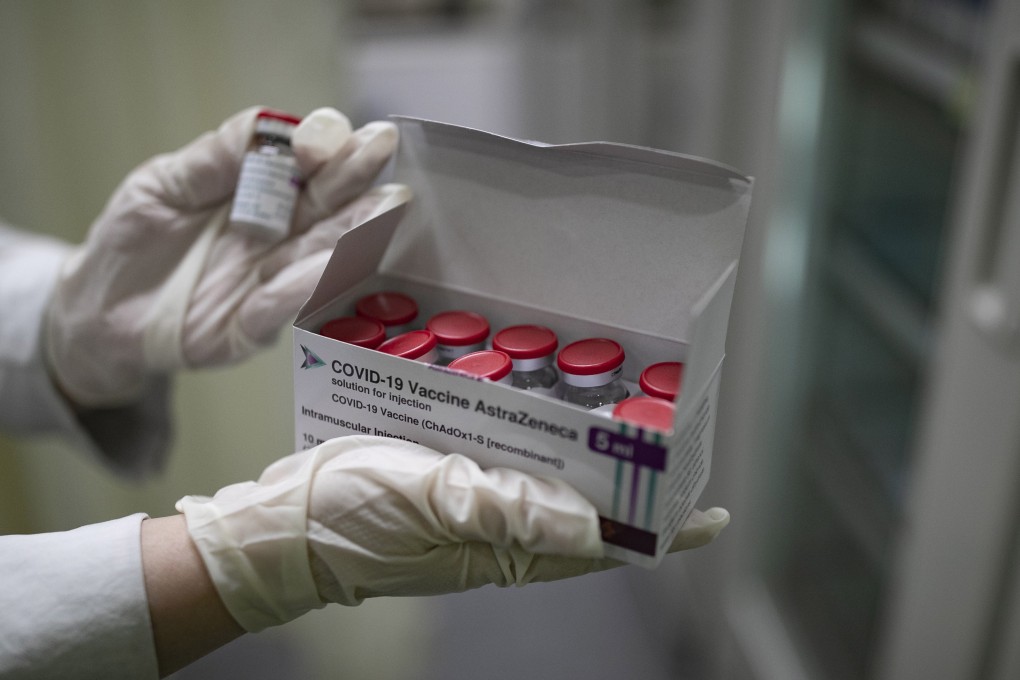Advertisement
South Korea considers vaccine export curbs amid fears of fourth wave of coronavirus infections
- South Korea is exporting the AstraZeneca Covid-19 vaccine but with infections at a three-month high, a top official said ‘all options are on the table’ to secure supply
- Health experts say restricting exports would damage the country’s credibility as a trustworthy contract manufacturer of vaccines
Reading Time:4 minutes
Why you can trust SCMP

Park Chan-kyongin Seoul
South Korea has hinted that it might consider curbing exports of locally produced AstraZeneca vaccine doses amid global supply shortages, as health experts warned the move would hurt the country’s reputation as a contract manufacturer.
This came as it reported 668 new Covid-19 cases on Wednesday, the highest number in three months, with continuing sporadic cluster infections prompting officials to express concerns over a new wave.
The latest cases marked a sharp rise from 478 the previous day and was the largest since 674 daily infections on January 8, the Korea Disease Control and Prevention Agency (KDCA) said. The country’s total number of cases now stands at 106,898.
Advertisement
“We need to be more vigilant as the fourth wave of the pandemic approaches,” said Yoon Tae-ho, a senior official from the health ministry.
Concerns have been growing about delayed shipments of vaccines as the United States, European countries and India take steps to strengthen control over vaccine exports to deal with domestic shortages.
Advertisement
In response to questions from journalists on Tuesday, health officials did not rule out the possibility of restricting exports of AstraZeneca vaccines being produced in South Korea by SK Bioscience.
Advertisement
Select Voice
Choose your listening speed
Get through articles 2x faster
1.25x
250 WPM
Slow
Average
Fast
1.25x